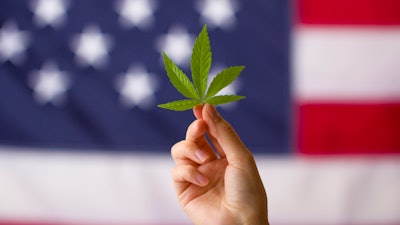
Wine & Spirits Wholesalers of America (WSWA) today announced a commitment to advocating for the federal legalization and regulation of adult-use cannabis by applying regulations similar to those implemented for alcohol, making them the first alcohol industry trade association to do so. In a letter shared yesterday with members of Congress, the association presented a comprehensive and robust federal regulatory framework along with warnings that addressing the issue in a “piecemeal manner” will result in de facto federal legalization that does nothing to address product safety, trade practices, or interstate sales and enforcement.
"The time has come for Congress to legalize and regulate adult-use cannabis at the federal level,” said WSWA CEO and President Francis Creighton. “The success of our alcohol regulatory system offers a proven model for cannabis regulation, one that will promote public health and safety as well as a fair and competitive marketplace.”
WSWA’s framework is built on four principles drawing on long-established federal laws governing the alcohol industry. With an emphasis on public safety and accountability, this system will provide a transparent and effective framework for adult-use cannabis production, testing, distribution and tax collecting. First released in 2021, the association updated its Principles for Comprehensive Federal Legalization and Oversight of the Adult-use Cannabis Supply Chain, alongside the announced commitment to actively advocate on the issue.
WSWA’s Principles for Comprehensive Federal Legalization and Oversight of the Adult-use Cannabis Supply Chain are rooted in four pillars:
- The federal permitting of cannabis producers, importers, testing facilities and distributors.
- The federal approval and regulation of "cannabis products and product labels"
- The efficient and effective collection of federal excise tax.
- Effective federal measures to ensure public safety.
“States have successfully regulated the alcohol market for their citizens for nearly 90 years — they should retain the authority to regulate cannabis in the manner that best suits their local needs, including being able to choose not to legalize the product in their state,” said Creighton. “Federal regulation of cannabis should focus on issues of public health and safety and interstate commerce, such as standard potency measurements, labeling and marketing guidelines, the licensing of producers, testing facilities and distributors, collecting excise taxes, and properly funding impaired driving prevention and enforcement.”
“Efforts that fail to include these critical regulatory provisions risk exposing consumers, communities, and industry businesses nationwide to the widening negative impacts of legalization already being seen in the marketplace without adequate federal oversight,” added Creighton.
WSWA is actively briefing members of Congress and staff on the importance of a strong regulatory structure based on the alcohol industry regulatory framework as the model of public safety, responsible distribution and retail practices.






















